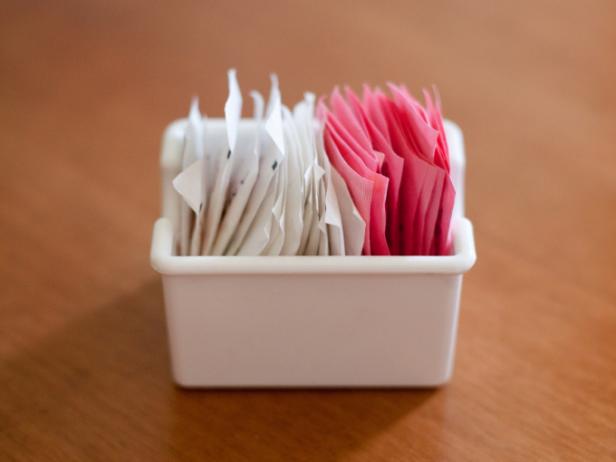They’re marketed as healthier, lower-calorie alternatives to your favorite sugary treats, but are sugar-free foods
actually better for you? Well...maybe and maybe not. We've got the details on the good and bad of sugar-free foods.
Some artificial sweeteners are calorie-free, while others come
along with a small amount of calories per serving (but those calories
can add up if you eat them often). The most popular sweeteners are still
those blue, pink and yellow packets, along with the newest sweetener on
the block called
stevia. When used as food additives, you’ll see them on ingredient lists as aspartame, saccharin, sucralose and rebiana.
No matter which type you choose, all faux sweeteners are hundreds
of times sweeter than sugar. Despite claims that they’re made from sugar
or come from a natural plant source, all have undergone some type of
chemical process before they reach your lips. Though research is
limited, eating too much of these types of chemically treated sugars has
been linked to adverse side effects including stomach upset, blood
sugar control issues and increased risk of some types of cancer. Some
research also suggests that eating excessive amounts of
chemically-sweetened foods will entice the brain to want sugary (and
typically less healthy) foods more often – not helpful for the quality
of your diet
or your waistline.
Once only used in a limited number of foods, artificial sweeteners
are now lurking in everything from diet sodas and juices to cookies and
salad dressings. Manufacturers of light ice creams, low-cal yogurts and
diet fruit juices often use artificial sweeteners along with added
sugars to cut down on calories. So just because something isn’t labeled
“sugar-free” doesn’t mean it won’t contain fake sweeteners.
To confuse things ever further, many foods that do use artificial
sweeteners exclusively aren’t always lower in fat or calories than their
sugar-containing counterparts. Some brands of sugar-free frozen treats,
candies and cookies have very similar calorie counts despite their lack
of sugar.
There is a time and a place for artificial sweeteners. Artificial
sweeteners allow for some additional options for those that suffer from
diabetes or folks trying to cut back on sugary food overload. But option
for sugar-free alternatives shouldn’t be viewed as a free pass to eat
sugar-free fare day in and day out for the reasons mentioned above.
Bottom Line: At 15 calories per teaspoon, a small
amount of regular sugar here and there can be worked into anyone’s
healthy diet. If you do choose to use artificial sweeteners to help with
diabetes, weight management and calorie control, do so in moderation
and check ingredient lists -- your intake of artificial sweeteners may
be more substantial than you think.
TELL US: What’s your take on the faux sugars?
